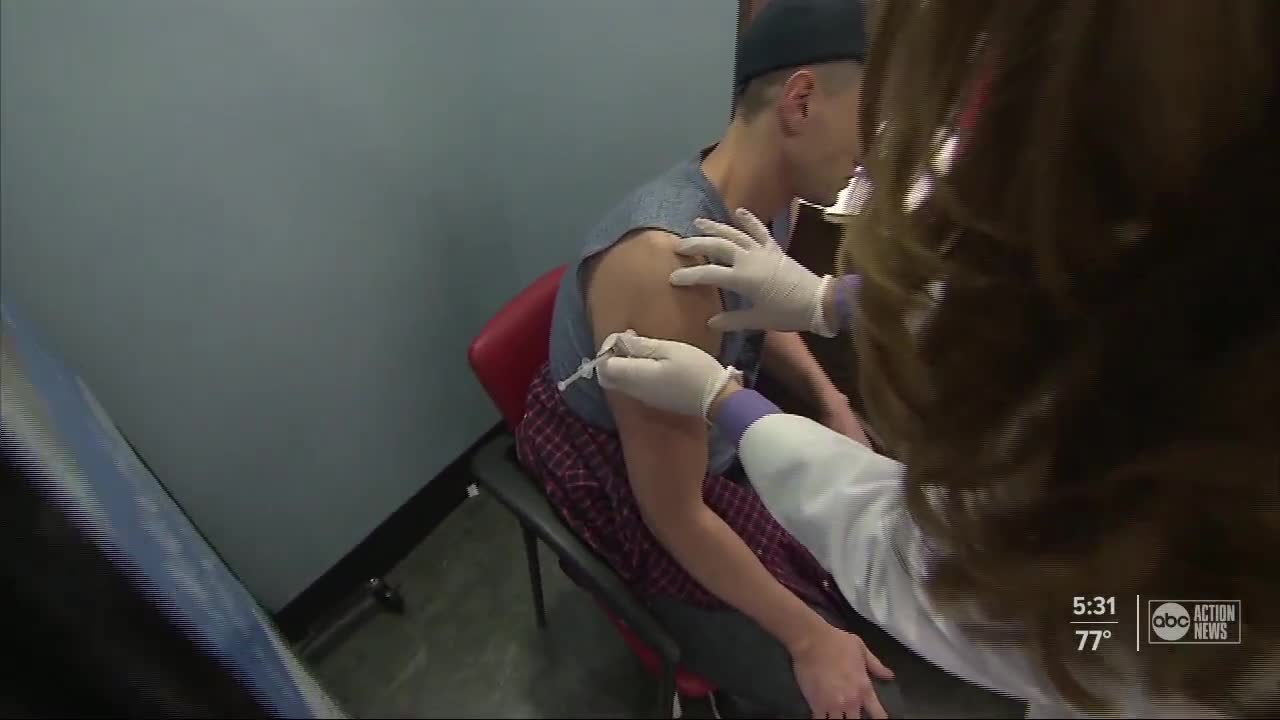ST. PETERSBURG, Fla. -- Hospital in the Tampa Bay area are swamped.
One of them reports it's 96 percent full. It comes as no surprise to doctors who warn we’ve entered peak sick season.
This January, February and March, hospitals are bracing for the rush of patients. Your neighborhood hospital is likely slammed right now.
“It’s definitely our busiest season," said Dr. Joseph Perno, chief medical officer and ER physician with Johns Hopkins All Children's Hospital.
The hospital reports it’s about 20 percent busier than usual for this already busy time of the year. Over in Polk County, Lakeland Regional Health reports it is 96 percent full, as of Thursday.
Timothy J. Regan, MD, Lakeland Regional Health Medical Center's President and Chief Medical Officer, released the following statement:
“At this time of year, it is customary for hospitals in Florida to see an extremely high number of patients. With the intensity of this year’s flu season, coupled with the high number of elderly residents in our area, we are seeing that same uptick in patients at our 864-bed Lakeland Regional Health Medical Center that we do each January, February and March.
Our team plans well in advance for this influx, ensuring that we continue to provide exceptional care to the patients and families we are privileged to serve.
We are operating under normal conditions and have not had any interruptions in emergency medical services.
This does, however, provide us with an opportunity to strongly encourage those who have not gotten their flu vaccine that it is not too late to do so. In addition, those with the flu can help do their part to stop the spread of this virus by delaying their return to work or school for several days as well as using good hand-washing practices. Prevention of the flu is not something to take lightly, as flu complications in young children, older adults and people with underlying health conditions can be extremely dangerous.”
For hospitals, the flu is attributing to the high volume of patients.
“Flu has been a big driver this season we’re seeing a lot of influenza. We’ve seen an earlier surge than we’ve seen before," said Dr. Perno.
Unfortunately, this year’s flu vaccine is not a very good match for the B strain that’s popping up. According to the Florida Department of Health, the sunshine state is seeing widespread flu. The good news for Floridians is that activity has decreased for the second week in a row. However, FDOH warns "it is too early to say if activity has peaked yet for the season. Elevated activity is still expected for several more weeks."
At Tampa General, medical staff expect to have over 400 cases by the end of the month. Fifteen BayCare hospitals in the Tampa Bay and Central Florida regions report seeing a slight increase in ER encounters this month compared to what they saw by this time last year. They say it's not significant at this time.
“We’re prepared for it, we’re ready to deal with it," said Dr. Perno.
His hospital has hired temporary nurses to keep up. They can also extend the ER space in case of a surge. But if that doesn’t cut it, hospitals are sometimes forced to ask ambulances to go elsewhere.
“That’s always a possibility and we do everything we possibly can to avoid that," said Dr. Perno.
Neither Lakeland Regional Health or Johns Hopkins All Children's Hospital has had to do, what's known as, a medical diversion this month. ABC Action News asked if medical diversions are common during this peak sick season.
“Unfortunately it is. You’ll hear about different emergency rooms or hospitals going on divert where they just say it would be unsafe to take another patient," said Dr. Perno.
Dr. Perno advises families that, while not a perfect match, you should still get your flu shot. It can still lessen the flu’s severity and perhaps avoid you a trip to the hospital. Also, remember to wash your hands and prevent infecting others by staying home if you are sick.




